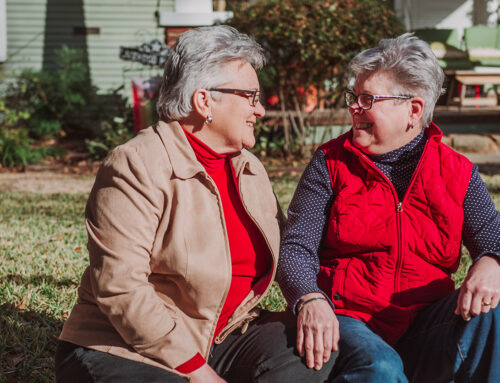The words “household hazardous waste” can be a tongue twister, but what the term implies is a serous matter.
Some of the items commonly stored in garages everywhere need to be disposed of in a special way. Since the average American household generates 15 pounds of hazardous waste a year, we should educate ourselves about how to use, store, and dispose of these products.
A helpful booklet was published in 1993 by a HHW disposal network consisting of the Dallas County Fire Marshal’s office and 14 cities, including Dallas. These booklets are available at HHW collection sites.
Here are some basics from this publication:
Categories of HHW: ignitable/flammable (can be set on fire easily or ignited: gasoline, motor oil, nail polish, varnishes); reactive/explosive (may detonate or explode through exposure to heat, sudden shock, or pressure: ammunition, home chemistry sets); corrosive/caustic (can burn and destroy living tissue upon contact: lead acid batteries, drain cleaners); and toxic/poisonous (can cause poisoning or death if eaten, inhaled, or absorbed through the skin: antifreeze, pesticides).
Key signal words: “Danger” means a highly toxic product; a taste to a teaspoonful is the approximately lethal dose to humans. “Warning” indicates moderately toxic; lethal dose is a teaspoonful to a tablespoonful. “Caution” implies low toxicity or relatively nontoxic; an ounce to more than a pint is a lethal dose, although some products may not be deadly at any level but may cause illness. Other words to watch for are flammable, corrosive, caustic, or volatile.
Storage tips: Make sure all lids and caps are tightly sealed and childproof; store containers out of children’s reach. Store solvent containing rags in a sealed metal container. Store gasoline only in safely approved containers in well ventilated areas. Keep away from all sources of heat, flame, or sparks. Keep products in their original containers for easy separation at collection sites.
Storage combinations to avoid – Acids and Bases: Avoid storing these together. For instance, don’t store vinegar and soaps together.
Pool Chlorine: Always store this away from other products. If it is mixed with brake fluid, oil or other organic materials, it can smolder for a few minutes, then burst into flames. If it is mixed with slightly acidic liquids, such as colas, it can release deadly chlorine gas.
Ammonia Household Cleaner: Do not store or use this with chlorine bleach. It can emit chloramine gas which may cause coughing, voice loss, burning sensation, and even death.
Ammonium Nitrate (fertilizers): Do not store with vinegars, petroleum based products, oil, charcoal or other flammable liquids. It will form an unstable fuel that will ignite easily when warmed.
The HHW booklet includes a handy chart that lists disposal methods for products used throughout the home. Some products can be safely poured down the drain with plenty of water, others can be properly disposed of in a landfill, and some should be taken to a HHW collection site.
In the kitchen, you can throw out ammonia based cleaners and empty aerosol cans with the trash. Aluminum cleaners, drain cleaners, and window cleaners can all be poured down the drain. Products saved for collection should include bug sprays, floor care products, furniture polish, metal polish with solvent, and oven cleaners (lye based). Most bathroom and personal care products can go down the drain, including after shaves, perfumes, bathroom cleaners, disinfectants, expired medicine, permanent lotions, and toilet bowl, tub and tile cleaners. Solidified nail polish can go in the trash.
The garage is another story. Of the many auto repair products we store, only windshield wiper fluid can go down the drain. Recycle antifreeze, motor oil, oil filters, and vehicle batteries. You should save these products for HHW collection: automatic transmission fluid, battery acid, brake fluid, car wax with solvent, diesel fuel, fuel oil, gasoline, kerosene, auto paint, solvent based glue, fungicides, herbicides, insecticides, rat poison, and weed killer. Fertilizer can go out with the trash.
Some home improvement products should be saved for HHW collection, including latex paint, model paint, oil based paint, paint brush cleaner with solvent, paint stripper, paint thinner, primer, turpentine, varnish, and wood preservative. Cans of dried latex paint can go out with the trash. Miscellaneous items to save for collection are artist’s paints/media, household batteries (with mercury), fiberglass, epoxy, gun cleaning solvents, lighter fluid, moth balls, photographic chemicals, and swimming pool acid.
The Dallas County Fire Marshall’s office coordinates the HHW collection days, usually around five a year. The last one was visited by a record 1,400 people, and others are scheduled for March and April. In order to alleviate crowds and waiting lines and make the collection sites more accessible, the department hopes to begin a mobile, drop-off unit that would visit various locations.
If you live in one of the 14 participating cities you can recycle your HHW free at a collection site; bring your driver’s license and a current utility bill. Otherwise, the going rate is approximately $65 per person down from the $90 when these collections began in 1993, according to Sandy Cook, HHW Program Manager for the Dallas County Fire Marshal’s Office.
Each participating city pays for its own citizens’ HHW disposal. Due to its size, Dallas must comply with storm water quality requirements, so the city budgets for this disposal fee. Water runoff from residential areas includes many toxic substances, which is washed into storm drains, then into streams, rivers, and lakes.
Make it a point to attend one of the scheduled HHW collections, held on Saturdays from 9 a.m. until 4 p.m. Be sure to remember your driver’s license and utility bill. The upcoming disposal dates are March 9 at Texas Stadium; March 30 at Mesquite’s Memorial Stadium; and April 20 at Kiest Park in Oak Cliff.





